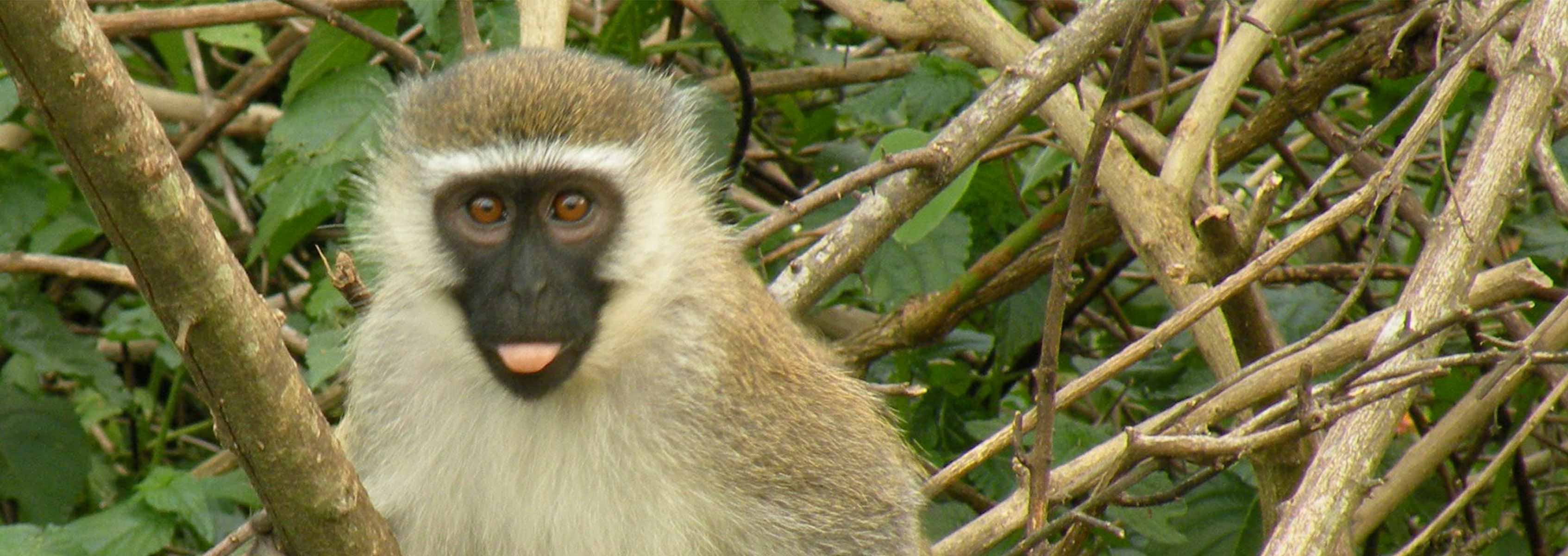Diet Drives Specific Taxa, While Phylogeny Acts More Broadly in Vervets Fed a Western Diet

We compared the fecal microbiomes of wild foraging Vervets (n=15) to captive Vervets fed a typical western diet (TWD; n=12) over a period of 6 months. The microbiomes of each group were surveyed using 454 pyrosequencing across the V3 – V1 region of the 16s ribosomal RNA gene. In all 202,438 high quality sequences were generated (average 7497 / sample). These sequences were compared to previously reported microbiome surveys from western humans to determine the propensity for diet to drive convergence of the microbial ecosystem and obtain a relative measure of the effect of phylogeny.
We observed substantial and significant contributions from both diet and phylogeny to the microbiome structure. These factors were cumulative rather than mutually exclusive, and phylogeny exhibited a marginally greater effect than diet. Bacteria from the Clostridiales order largely drove the observed dietary convergence, with the largest contributions coming from the Lachnospiraceae and Ruminococcaceae families.
We tested for neutrality to preclude a significant effect from environmental differences between the captive and wild vervets using Caswells V and found strong departure from neutrality. The Lachnospiraceae and Ruminococcaceae families include many described species that are known to play important roles in the deconstruction of dietary carbohydrates and we propose they are more responsive to diet than other taxa. This would suggest that different drivers of microbiome structure may act at different taxonomic levels, and this observation is the first step in detangling those relationships.
Funding
This project was funded by National Science Foundation (NSF) grant #0935347.